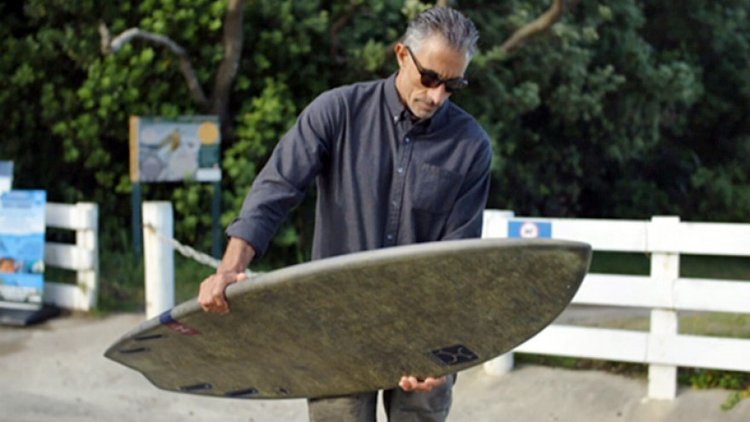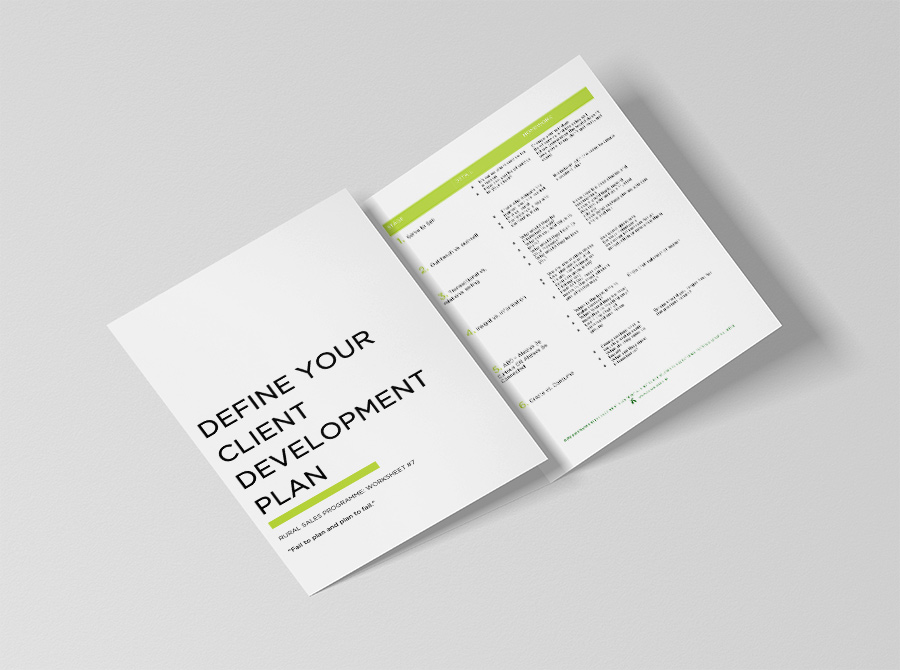If You Don’t Grow Intelligently You Will Lose To Someone Else Who Is
My mission is to champion life-long learning among rural business owners using education-based sales and marketing content that teaches them and their teams how to remain relevant and be more productive and profitable.
Growth for growth’s sake is a dumb strategy. In fact, it isn’t a strategy at all. It signals loudly to everyone else you don’t have one.
We all want more profit but if that growth comes at a cost that reduces your margins or puts a crisis on your cash flow it isn’t intelligent growth.
Growing for growth’s sake means you overload your top people who leave you whilst you foot the expensive bill of replacing them and ramping new staff all over again. You might even burn yourself out in the process or get seriously sick.
When you pursue growth unintelligently, you have to say yes to shitty clients and tolerate poor client behaviour because your ego told you to build an empire and now you find yourself working for wages with monthly payroll bearing down on you each month.
When you choose growth at all costs, you have to focus on firefighting to get through the every day to keep the lights on instead of stopping to reflect and plan on how you can be smarter and more efficient further out. You end up having to accept lower priced work because you’re a generalist who said yes to everyone. You have to discount your product to fill a bigger machine or factory growing on less margin with more risk. Or you sell the same stuff without innovating whilst everyone else passes you by.
You get my point.
All these examples aren’t intelligent growth. They demonstrate simplistic, short-term stupid growth.
We all see too many rural business owners working harder spending longer hours that result in them taking on more risk whilst they make less money. It’s not good growth, it’s bad growth.
The Kauffman Foundation and Inc. Magazine conducted a follow-up study of businesses five to eight years after they made it onto Inc.’s 5,000 Fastest Growing Companies List. The findings revealed that 2 out of 3 companies on the list had gotten smaller, been disadvantageously sold or gone out of business entirely.
This research study proves that all growth isn’t always good growth.
Your type of growth will always depend on your intent:
- Is it ego driven or purpose-driven?
- Better still, is it customer-driven?
- Are you being strategic or just making it up as you go along?
- Are you focussed on short-term survival or playing the longer game that lies ahead?
To get of your treadmill, you need to stop and ask yourself this simple question:
WHY DOES YOUR RURAL BUSINESS MATTER?
This question packs a powerful punch because it forces you to think about your meaning and the value your business contributes. Simon Sinek would call it their Why. We also call it Purpose. Some call it being Strategic. I just call it being Intelligent.
As customers expect more from their rural businesses these days, it means you have to adapt to keep up. Customers want the companies they deal with to be socially responsible, ethical in their supply chain and procurement, environmentally conscious and treat their employees fairly without discrimination. We also expect the people we deal with or work for to be generous, kind, affectionate and charitable. Not greedy, money-grabbing dickheads who only think of themselves (short game that one btw).
When consumer trust in big business is at an all time low (matched only by governments and politicians), as proven by the annual Edelman Trust Barometer, going for growth for growth’s sake isn’t enough. Their findings across 18 years of data and 33,0000 respondents in 28 countries discovered:
- 56% of people think that “Companies that only think about themselves and their profits are bound to fail.”
- 60% of people think “CEOs are driven more by greed than a desire to make a positive difference in the world.”
- 63% of people agree with the statement: “A good reputation may get me to try a product but unless I come to trust the company behind the product I will soon stop buying it, regardless of its reputation.”
This all means we need to be more than just more. As rural businesses, we have to intrinsically matter and mean something to our people and customers if we want to make more money in a more sustainable, intelligent way.
Chasing money without meaning isn’t the way to grow intelligently. You need to marry the two where money follows meaning, not the other way round.
NZ AGRICULTURE NEEDS TO GROW INTELLIGENTLY TOO

Closer to home, I and many others write about the need for NZ Ag to grow more intelligently as our environment and waterways are telling us. New Zealand’s tourism sector needs to grow more intelligently too or we kill the very product we’re promoting (open spaces, clean and green). Just ask Lake Hayes residents in Queenstown how they’re feeling about this summer holidays.
Some would suggest Fonterra needs to grow more intelligently like Tatua and Synlait have pursuing smaller volume products in higher value markets. Pamu (Landcorp) and their CEO Steven Carden are showing the way with their latest investment in the Sheep Milk business, their deer milk drive and their wool-made surf boards in conjunction with world surf champion Kelly Slater.
These bold new business moves won’t be fast in payback but they are intelligent because they’re hitting it where other’s aren’t – what we marketers now call blue oceans. They’re playing the longer game knowing today’s commodity markets are full.
The red meat sector suffers the same issues. Volume over value. Throughput over profit. The smarter, smaller ones are growing their value slowly and surely like Ovation, First Light, Atkins Ranch and GreenLea Meats.
WHAT DOES GROWING INTELLIGENTLY MEAN?
Growing intelligently means growing in smarter, more profitable ways. It means being more considered. It means having a strategy for yourself and your business. It might even mean walking away from clients who cost you too much in time, energy and return.
As a rural business owner, ask yourself these questions:
- how can we be more useful to our customers?
- who or which markets can we focus on serving best?
- what’s the one biggest, most positive impact we can make?
- what’s the lasting legacy can we leave the next generation of our people and customers?
- who is our ideal client? What do they look like? What attributes do they have that show there’s a good fit between us?
- what specific and unique value can we offer them that very few others in our category can match?
- what new business models could we create to diversify current revenue streams? (you can download 2 free business model tools to help you right here)
- can this business model be easily replicated or beaten by lower pricing or offshore competitors?
- can our business model be displaced by new technologies?
- what new products or services can we develop to capture new customers’ needs?
- what proprietary products could we create to secure new niche markets?
- which companies could we partner with to increase our sales?
- have we invested enough in our people to help them and us vs. hire more people?
- have we researched new trends and consumer insights to see where we can innovate or differentiate?
- are we committing to continual learning or are we just on wash and repeat?
- which market niche or emerging consumer trend could we take advantage of?
- what research have we commissioned to look at and validate new markets?
- how are we future-proofing our business so it’s still relevant in 5 or 10 years time?
Say no to grow!
Steve Jobs was a big fan of saying no. For him it was all about focus:
“People think focus means saying yes to the thing you’ve got to focus on. But that’s not what it means at all. It means saying no to the hundred other good ideas out there.”
If you want to be a business that wants to grow intelligently you need to have the courage to say no to the wrong clients and projects so you can free up time and resources to make room for the right ones.
Saying yes to everything does nothing to position yourself as a specialist or authority. It only undermines your business.
If you do, you become the unisex hair salon: the one for everyone. No one goes to unisex hair salons these days (and if they do they pay very little).
Don’t say yes to everyone. Be intelligent instead. Work out and qualify if there is a fit and a need that can you help them solve. If not, be the professional you are and move on.
Some clients aren’t the right fit. Not bad people, just the wrong match. Refer them to someone they would be a better fit for. Same with new hires. They might have amazing skills but if the attitude and character isn’t there it won’t work long-term. Do your homework and make sure you vet them well using your whole team in the recruitment process. Whilst they might be very persuasive, they might not be the one for you.
If you choose to ignore this advice, you might find yourself of a cycle of churn n’ burn at customers and talent level which gets very painful and expensive for any rural business to sustain.
GROWING INTELLIGENTLY MEANS IT’S OK TO FAIL.
Most people fear failure because of what it says about them to others. If everyone was like that we’d never have innovation:
“We repeatedly encourage our teams to take risk. Repeating formulas that led to past success is a bigger threat to long term survival than the occasional commercial disappointment.” Ed Catmull, President, Pixar
Pixar did it and you have to too. You have to take calculated risks in business in order to make breakthroughs. More of the same doesn’t cut it because everyone’s getting better faster as the speed and adoption of new technologies emerge.
As I say to all my clients:
What got you here, won’t get you there.
Experiment by taking little bets and fail fast. Set aside a proportion of budget for experimentation. Only by failing do you learn faster what not to do. Failing fast is great for feedback too.
If you don’t try, how will you ever know?
“Productivity is vanity, profitability is sanity”
My good sharemilker friend Olin Greenan shared this pearler with me at a farmer panel years ago and it’s a quote that’s stuck with me ever since.
It’s another way of saying: it doesn’t matter what you make, it’s what you keep.
Business owners often broadcast their revenue and the number of people they employ (rather than how many people they serve I might add). Very few will tell you their profit unless they’re listed publicly of course which makes their performance that more accountable to their Board and their investors.
Big impressive numbers are great but as our mate Warren Buffet above said:
“Only when the tide goes out do you discover who’s been swimming naked.”
Don’t place a value on growing revenue. Make a commitment to growing value. Take the time to find out what your customers really value and then build your business around it.
SO HOW CAN YOU AND YOUR RURAL BUSINESS GROW MORE INTELLIGENTLY?
Are you growing up?
What about your rural business?
Do you own it or does it own you?
“If you don’t have a plan for your own life, you’ll become part of someone else’s plan for theirs” John Heehan (courtesy of Chuck Blakeman, The Crankset Group)
How much time are you dedicating to learning and improving you and your rural business or are you just too busy to get round to it? Are you growing or are you just treading water bobbing around being pushed by the currents of life? Maybe your growth is more about chance than design, which means you’ll be up for a big wake up call soon. Or maybe you like the addiction of the treadmill and fire fighting because it makes you feel needed or productive?
I guarantee if you don’t invest in yourself and your rural business, you will be left behind. When others are honing their skills whilst you’re binging on Netflix at night or doing the same old same old day in day out, you and your rural business will fall behind and become far less marketable and valuable.
Of course, you can do something about this.
We are all given the same amount of time each day. Some of you are single and others of you have busy lives with demanding young families. It doesn’t matter. It’s what you do with the time you have that matters most. How do you spend your time? Do you spend it or allow others to spend it for you?
It’s never about being busy, it’s all about what you make a priority and what becomes your habit.
“I always judge a man on what he does, not what he says” Andrew Carnegie
The best advice I can give you is to commit to life-long learning and make an investment in yourself and your rural business, just as you do with your home.
I believe your biggest income producing asset should always be yourself because your business then benefits from all that learning. That way, you then then use the additional income you earn to invest in even better, more effective ways of making yourself and your business an even more valuable asset. It will allow you to buy other income producing assets along the way too.
It becomes your very own fly wheel to greater prosperity.
There is a wealth of knowledge you can access online nowadays which means there has never been an easier or better time easier to up-skill and learn more. However, it’s the same for everyone else. What you choose to do with your time and where you invest in learning can be what sets you apart.
WHAT THINGS HAVE HELPED ME GROW INTELLIGENTLY THE MOST?
A lot of people ask me how do you find time to write content like this. The answer’s easy. I make time because I think learning is the best way to grow intelligence. By writing and applying what I’ve learnt, I retain more of it.
Because of this, I’ve learnt a lot in the past 18 months and they’ve now become powerful habits and rituals of mine. Here are a few of them:
- Commit to the “5 Hour Rule” (1 hour per night per week minimum learning something new courtesy of the very generous learning coach Michael Simmons)
- Use the first 2 hours of your working day on your highest value work (this has been a HUGE productivity driver for me)
- Get 8 hours of quality sleep (go to bed and wake at the same time, including the weekends)
- Eat good nutritious food and eat before you get hungry (I eat every three hours and surround myself with good food choices to avoid bad ones)
- Exercise regularly (when I’m really busy I make time to exercise even more because it’s the first thing you should increase, not decrease)
Each of these habits has a massive compound effect on your energy, learning and earning potential. It helps you become a more effective and inspiring leader to your team and family too.
I guarantee taking action on a few of these things I’ve featured here will make you more effective, more productive and increase your income significantly.
I hope some of the ideas I’ve shared here help you and your rural business grow intelligently.
Good luck.
ps: one last thing – if you got value from this article and learnt something from it, please help me by Sharing this article with your network. Sharing is caring plus it will show to others how you’re growing intelligently too: )
How can your rural business grow more intelligently?
What about you personally, how can you grow more intelligently as a person? What tools and habits are you using? What books are you reading? Who are you learning from most?
I’d love to hear your suggestions, tools and experiences to help all of us grow more intelligently so we can all lead richer, healthier lives.





